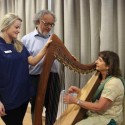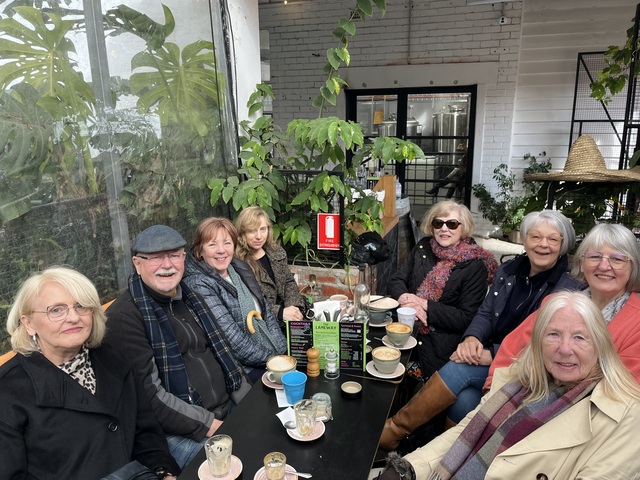By KATH GANNAWAY
PROFESSOR Peter Disler is challenging care and health providers, and families, to turn around the way they view and treat people with dementia.
With more people now living into their eighties and nineties there’s a natural increase in problems of degeneration.
Dementia is one of those problems, and according to Prof Disler, a geriatric specialist and academic with 30 years’ experience in the field, it is perhaps the most profound to deal with.
Prof Disler spoke in January at the launch of Healesville aged-care facility, Aurrum’s ‘Remember’ dementia program.
As chairman of Aurrum’s Clinical Governance Committee, he was instrumental in developing the program which was introduced at the launch to regional workers in aged-care and health including social workers, doctors, community workers and practice workers, as well as representatives of Alzheimers’ Australia.
Prof Disler said geriatric health and other services that assisted people to continue to live longer in their homes had improved in recent years. This has given rise to people needing out-of-home care to manage patients from a dementia point of view.
“The cornerstone of dealing with people with dementia is to give them some dignity,” he said.
Asked what we have learnt about dementia in the past decade, he said the first thing was that people with dementia deserved to be respected.
“I don’t think that was apparent 10 years ago,” he said.
“I think people now are saying that is not the way to treat people.”
There are a number of aspects to the Remember Program which is a clinically developed approach that focuses on the individual.
Maintaining good overall health is one of them.
Prof Disler said the program pushed for regular physical and mental reviews of residents that challenged a tendency to attribute every ailment to the dementia.
Another aspect is to move away from large group situations in day-to-day activities.
“I don’t think people live well in large group situations.
“Most of us live in nuclear families. Very few of us would be comfortable sitting in a dining room with 20 people eating every day.
“Doing activities in groups of five or six people, I think is much kinder than everyone sitting in a lounge watching TV.”
“People with dementia need to develop a consistent relationship with the people around them.
“It can be done,” Prof Disler said.
Does more money need to be spent by governments? It’s a ‘no-brainer’, he says.
“You need the number of staff that is required, and the fact is, that in most cases, it’s nowhere near that,” he said.
He says he’s encouraged by the commitment and keenness shown at Aurrum to provide high quality care and to actively look at different ways of approaching dementia care.
“The fact that business people are even asking for opinions from people like me is a sign people are changing,” he said.







